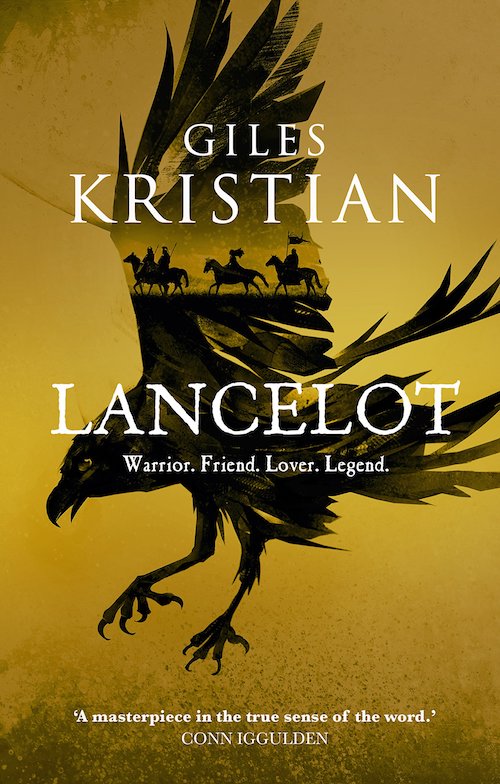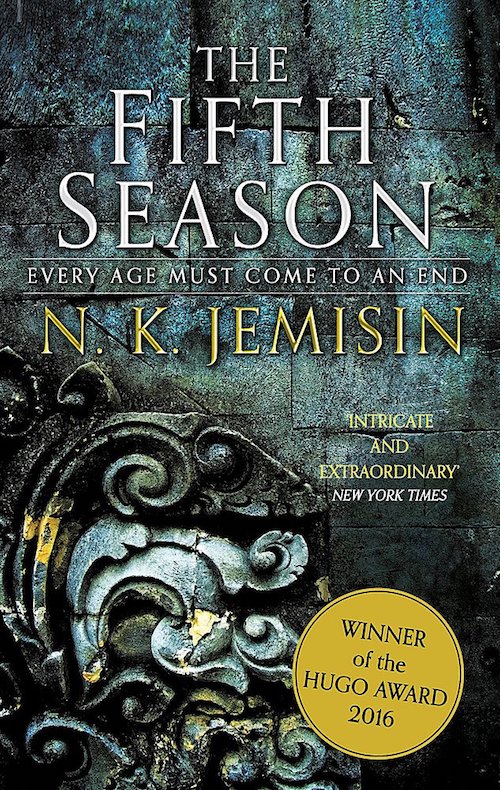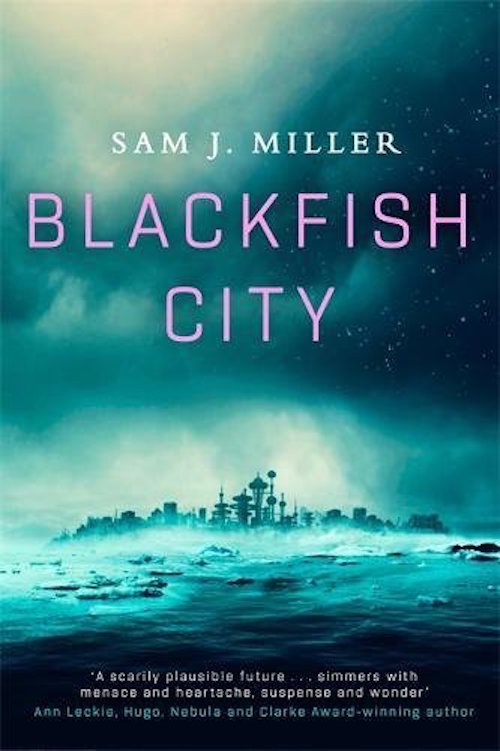THOUGHTS | DREAMS | ACTION

THOUGHTS | DREAMS | ACTION

Summer Reads 2018
FICTION
Lancelot, by Giles Kristian.
Full disclosure: Giles is a good friend and shares a publisher: he and I have been on panels and workshops and tours together, so I’m hardly likely to hate his books. That doesn’t mean I have to love them, though, or feature them in the newsletter, so this is a genuine, heartfelt plug for a book that is, I think, going to be this generation’s ‘Once and Future King’.
From the title, it’s obviously a version of the Arthurian myth, and given that I’m slowly working my way into the threads of Arthur that I left behind at the end of the Boudican series, it’s been absorbing and inspiring to see what can be done by taking a completely fresh look. Giles weaves a genuine sense of post-Roman, warlord-riven Britain with a magic that you can taste and feel and touch, and people who feel real enough to shake their hands. The hawking is absolutely real and is one of the features that makes this feel like TH White. That and the sense of reality that infuses all the best of the Arthurian cohort. IF you liked Rosemary Sutcliff’s ‘Sword at Sunset’, if you reveled in Mary Stewarts ‘Crystal Cave’ and ‘Hollow Hills’, then you will want to read this.

The Fifth Season by NK Jemisin
Actually, you should be reading everything and anything by NK Jemisin… I discovered Fifth Season – start of a trilogy – first, but then went back and read everything she’d written – a trilogy, a pair (what’s the Latin for two – duopoly?) and before that, a trilogy to start off with. This woman’s writing is extraordinary. The Fifth Season, first book in ‘The Broken Earth’ trilogy, won the Hugo Award in 2016, The Obelisk Gate won in 2017 and The Stone Sky is on the shortlist for the 2018 Award, which will be announced on 19th August. The series is a mix of magic and immensely high technology but the sense of races pitted against each other, of abuse and manipulation that seeps in as the series progresses says a lot about the world we live in. As with a lot of good fantasy these days, the gender and sexuality of the characters is fluid and inspiring and the depth of characterization is beautiful. For those interested in dreaming in any sense, her DREAMBLOOD pair is fantastic in all senses of the word.
London Rules by Mick Herron
Mick Herron is one of the most prolific – and successful – of the modern generation of spy thriller writers. His ‘Slow Horses’ series is a masterpiece of modern insight: fast, witty, ironic… and deeply, deeply mistrusting of the Establishment that rules over us. I have no idea if he genuinely has feelers lodged deep inside MI5, but it feels as if he does. His ‘Slow Horses’ series is predicated on the idea that the intelligence services can never sack anyone, can never make anyone redundant… so when they need to get rid of someone, they send him or her to Slough House, a place of such depressing tedium, that people will – they assume- resign. Only they don’t. They – those who survive – are becoming an ever-closer knit group of fallible, but resourceful individuals who can rectify the greater mistakes of said Establishment. They are a joy to read and this one is no exception. Well worth your time.
Blackfish City by Sam J Miller
Sometimes you take a risk with a book. Sometimes the risk pays off. And sometimes, you want to shout to the whole world READ THIS BOOK! Blackfish City is that kind of book, though the fact that I read the last third in one giant gulp last night – and finished rather later into this morning than is healthy – may have something to do with it. This, as far as I can tell is Sam Miller’s second book and if he keeps writing like this, he’ll be the Atwood-Clarke of the twentyfirst century. This is a dystopian future novel, but it speaks to today in ways little else I’ve read really does (All the Birds in the Sky – see below – is an exception.) The Blackfish city is a floating escape from a world where Water Wars and fabricated conflicts have destroyed all that we currently know. In addition, ‘nano-bonded’ humans have neo-shamanic connections with animals. Or at least, one of the key characters has a connection to an Orca that moves through the entire narrative. This is a multi-voice, multi-character, multi-gender, multi-sexual story that weaves increasingly tightly until all the disparate threads are one thread. It’s brilliant. I loved it. I am shouting at you now to read it.
All the Birds in the Sky by Charlie Jane Anders
This was the other recent fiction that had me up late into the night, and, like Blackfish City, it stands right at the edge of modern gender fluidity in ways that make me hopeful for future generations. The first half of this book reads like a YA ‘school is hell’ novel where the two protagonists – a young female witch, and a young male techno-geek – find common cause for a while against the hell of school…until they don’t. This is fun and interesting and hugely emotionally literate. But what brings the novel alive is the meeting of these two in adulthood, in a version of California that might be five or ten years into our future. Or, actually, might be this summer. Who knows? But we’re back to Arthur C Clarke’s statement that any sufficiently advanced technology will be functionally indistinguishable from magic. And most are. But still, magic has the edge. This is a fast, beautiful, massively emotionally literate story that shines a bright light on the techno-tsunami flowing out of Silicon Valley. Also well worth a read.
NON-FICTION
The Patterning Instinct by Jeremy Lent
The subtitle of this book is, ‘A Cultural History of Humanity’s search for Meaning’. And it pretty much does what it says on the tin, but it goes beyond the search for meaning and gives us a kind of answer, or at least, shines lights on whence an answer might comes, as we move from a world in which our meaning largely grew out of our work and into a world where work becomes (we hope) an optional extra. The writing is fluid and engaging. The scholarship is sound. The ideas are compelling – this is a book that shows us how we fell out of context with the world around us. More, it shows us why we fell out of context. And in the understanding of that why are the ways to grasp a different way of being. Just because our instincts drive our patterns one way, doesn’t mean we can’t choose to change. Knowing how we’re driven is the first step to taking control of the driving wheel. Reading this is an essential part of this. According to Amazon, it’s most often bought with Kate Raworth’s ‘Doughnut Economics’ and George Monbiot’s ‘Out of the Wreckage’ – so there you are, summer non-fiction sorted.
Why Buddhism is Right by Robin Wright
Again, the subtitle of this explains what’s in the tin: The Science and Philosophy of meditation and enlightenment. Rather like The Patterning Instinct, this is one of those books that rides on the wave of modern neuroscience. Given the angle of the learning curve on this, and the rate at which new insights are being made, it might well be obsolete by now, but that doesn’t stop it being an immensely heartening read.
At the heart of Buddhism, if we strip away all the cultural extras, is the suggestion that by knowing ourselves more deeply, we can gain a profound and lasting – and morally sound – happiness. Which sounds flaky until we begin to look at the ways in which we are unhappy, and why: physical and emotional pain abound and it’s only when those experiences cease to be painful that we realise how much they hurt. Wright uses himself as a guinea pig and lays bare the evolution of his own soul, so that we might better understand our own. His prose is beautiful, fluid and lightly ironic. This is no flowery self help book but a profoundly moving insight into our own betterment that offers a genuinely secular path to enlightenment.
WTF? by Robert Peston
The subtitle to this is a string of question marks which says it all, really. Peston may be an unreconstructed neoliberal freemarketeer, but at least he knows that he is, and is capable, within that paradigm, of looking at the system and identifying some of the fault lines in its evolution. I don’t necessarily agree with all his conclusions (not being a neoliberal freemarketeer), but his analysis of how bad is the crisis, is spot on. Even if you don’t think of yourself as interested in economics, this one is well worth a read.







